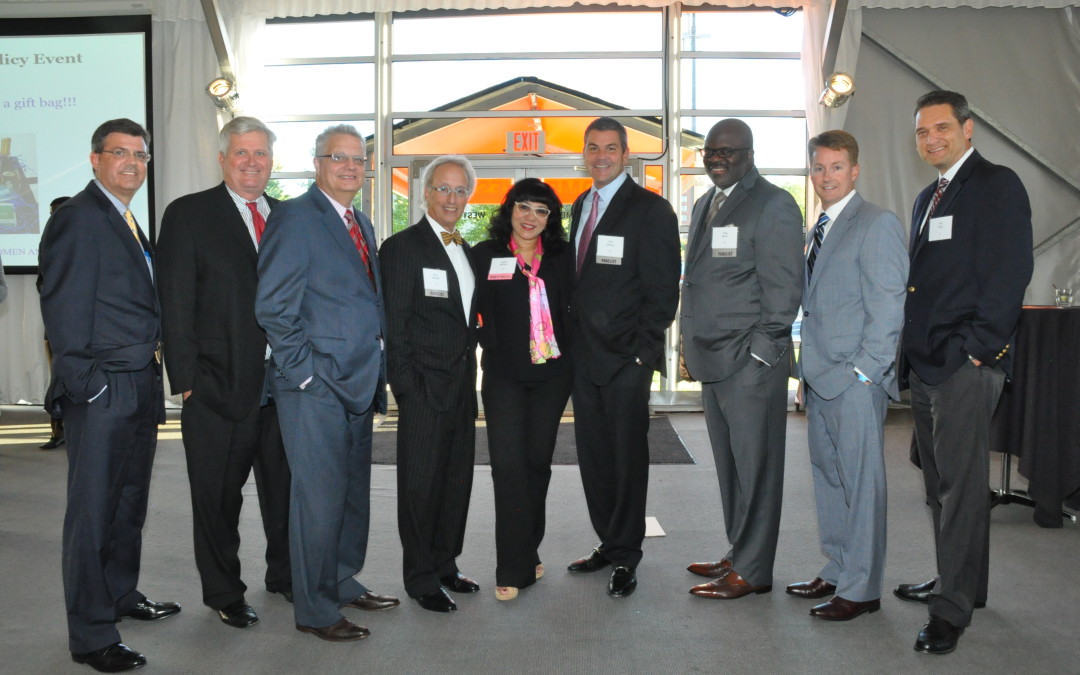Helping Women Get Ahead – By Partnering With Men
Sometimes, for social change to happen you must go outside your comfort zone…
Are men central to the conversation around women’s advancement and pathways to gender parity? A diverse mix of over 300 women and men thought so during a positive and lively panel discussion at the annual Women & Public Policy event on September 30 hosted by the Women’s Fund of Greater Milwaukee.
Held this year at the impressive Harley Davidson Chrome venue, the conversation focused on what it will take to break through the ever present glass ceiling that, to date has permitted less than 5 percent of women into the C-suites of Fortune’s top companies. Skillfully moderated by Women’s Fund Board Director Sangita Kasturi, the panel of eight high profile men shared how they address the issue of gender parity and equity within their companies and spheres of influence. Each panelist brought a unique perspective to the panel discussion based on their own positive experiences making gender equity and parity work.
Panelists
David Gay, Ernst & Young
Doug Harris
Stephen Johnson
John Kissinger, Graef USA
Kevin Long, Quarles & Brady LLP
Barry Mandel, Mandel Group
Mark Sabljak, Milwaukee Business Journal
Todd Teske, Briggs & Stratton
It was evident from post event feedback, that among the many ideas discussed, the top take always included: Steps key leaders can take to create an environment in which women can succeed and how to narrow the gender wage gap by being fully engaged in how women are treated when it comes to wage equity and advancing to leadership positions. Second, that women need more sponsors, as opposed to mentors. Mentors do play a key role as coaches and sounding boards for women. On the other hand, sponsors are key leaders who are in positions to advocate for the advancement of top performing women in their firms and that mentors talk to you while sponsors talk about you. Third, that the imposter syndrome can hinder women more than men as men are less likely to think they are not qualified for a position if they only meet five of the ten criteria; and, that women should not let the imposter syndrome affect how they see themselves. The end result is that women can give themselves more credit for their talents.
The panel also discussed being aware of unconscious bias that can lead to the inadvertent stagnation of women moving upward, being open to exploring salary gaps more deeply, and taking a closer look at gender difference overall.
The Women’s Fund of Greater Milwaukee thanks all who attended for their candor, courage and willingness to have an open and positive discussion to make a difference. Together, we are social change.
Stay tuned for information, education and events throughout the year focused on this mission critical issue.

